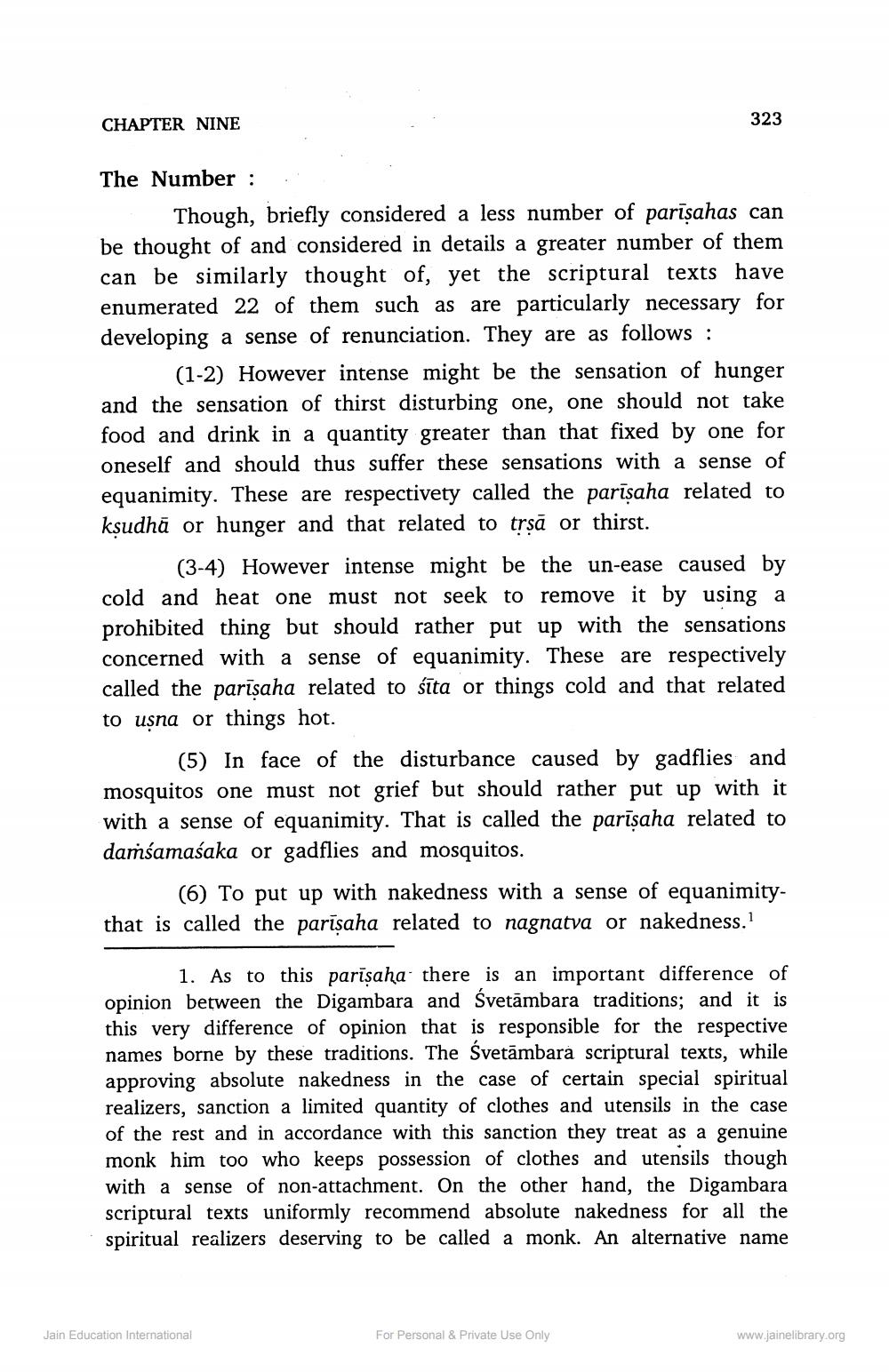________________
CHAPTER NINE
323
The Number :
Though, briefly considered a less number of parīşahas can be thought of and considered in details a greater number of them can be similarly thought of, yet the scriptural texts have enumerated 22 of them such as are particularly necessary for developing a sense of renunciation. They are as follows :
(1-2) However intense might be the sensation of hunger and the sensation of thirst disturbing one, one should not take food and drink in a quantity greater than that fixed by one for oneself and should thus suffer these sensations with a sense of equanimity. These are respectivety called the parīşaha related to kşudhā or hunger and that related to trsā or thirst.
(3-4) However intense might be the un-ease caused by cold and heat one must not seek to remove it by using a prohibited thing but should rather put up with the sensations concerned with a sense of equanimity. These are respectively called the parīşaha related to śīta or things cold and that related to usna or things hot.
(5) In face of the disturbance caused by gadflies and mosquitos one must not grief but should rather put up with it with a sense of equanimity. That is called the parīşaha related to daṁsamasaka or gadflies and mosquitos.
(6) To put up with nakedness with a sense of equanimitythat is called the parīşaha related to nagnatva or nakedness.
1. As to this parisaha there is an important difference of opinion between the Digambara and svetāmbara traditions; and it is this very difference of opinion that is responsible for the respective names borne by these traditions. The Svetāmbara scriptural texts, while approving absolute nakedness in the case of certain special spiritual realizers, sanction a limited quantity of clothes and utensils in the case of the rest and in accordance with this sanction they treat as a genuine monk him too who keeps possession of clothes and utensils though with a sense of non-attachment. On the other hand, the Digambara scriptural texts uniformly recommend absolute nakedness for all the spiritual realizers deserving to be called a monk. An alternative name
Jain Education International
For Personal & Private Use Only
www.jainelibrary.org




